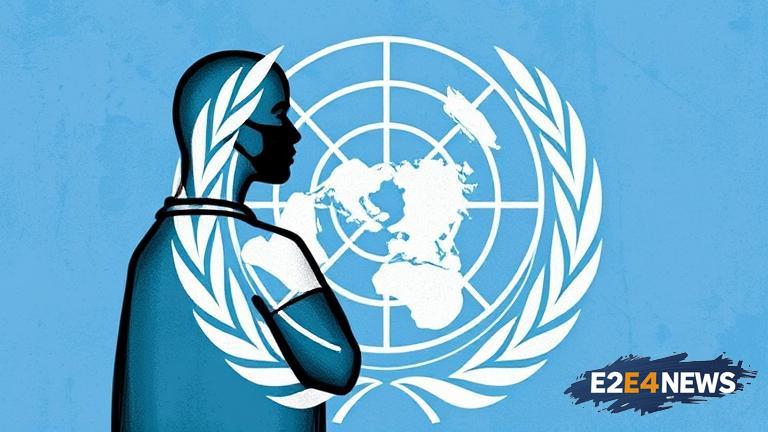The United Nations has recently proposed a ban on transgender surgeries, sparking a heated debate about the intersection of human rights, healthcare, and identity. The proposal, which has been met with widespread criticism from LGBTQ+ advocates, raises important questions about the role of international organizations in shaping healthcare policies and the rights of marginalized communities. According to the UN, the proposed ban is motivated by concerns over informed consent and the potential risks associated with transgender surgeries. However, critics argue that the proposal is based on outdated and discriminatory attitudes towards transgender individuals. The move has been condemned by human rights organizations, which argue that it undermines the autonomy and dignity of transgender people. The proposal has also sparked concerns about the potential consequences for transgender individuals, who may be forced to seek out underground and unsafe surgical procedures. Furthermore, the ban has been criticized for failing to take into account the complex and nuanced needs of transgender individuals, who may require access to surgical interventions as part of their transition. The UN’s proposal has also raised questions about the organization’s commitment to promoting and protecting the human rights of all individuals, regardless of their gender identity or expression. In recent years, the UN has made significant strides in promoting LGBTQ+ rights, including the adoption of resolutions condemning discrimination and violence against LGBTQ+ individuals. However, the proposed ban on transgender surgeries has been seen as a major setback for these efforts. The controversy surrounding the proposal has also highlighted the need for greater education and awareness about transgender issues, as well as the importance of listening to and amplifying the voices of transgender individuals. Despite the criticism, the UN has defended its proposal, arguing that it is necessary to protect the human rights of all individuals. However, the organization’s stance has been widely criticized as being out of touch with the needs and experiences of transgender people. The proposed ban has also sparked concerns about the potential impact on healthcare systems and the ability of transgender individuals to access necessary medical care. In addition, the ban has been criticized for failing to take into account the social and economic factors that contribute to the marginalization and exclusion of transgender individuals. The controversy surrounding the proposal has also highlighted the need for greater international cooperation and coordination on LGBTQ+ issues, as well as the importance of promoting and protecting the human rights of all individuals. As the debate over the proposed ban continues, it remains to be seen how the UN will respond to the criticism and concerns raised by LGBTQ+ advocates and human rights organizations. The outcome of this controversy will have significant implications for the rights and well-being of transgender individuals around the world. The proposed ban has also sparked a wider debate about the role of international organizations in shaping healthcare policies and the need for greater transparency and accountability in decision-making processes. Ultimately, the controversy surrounding the proposed ban on transgender surgeries highlights the need for greater understanding, acceptance, and inclusion of transgender individuals, as well as the importance of promoting and protecting their human rights. The international community must come together to promote and protect the rights of all individuals, regardless of their gender identity or expression. The proposed ban on transgender surgeries is a major setback for these efforts and highlights the need for greater education and awareness about transgender issues. The UN’s proposal has also raised questions about the organization’s commitment to promoting and protecting the human rights of all individuals, regardless of their gender identity or expression. The controversy surrounding the proposal has also highlighted the need for greater international cooperation and coordination on LGBTQ+ issues, as well as the importance of promoting and protecting the human rights of all individuals. The proposed ban has also sparked concerns about the potential impact on healthcare systems and the ability of transgender individuals to access necessary medical care. The outcome of this controversy will have significant implications for the rights and well-being of transgender individuals around the world.





